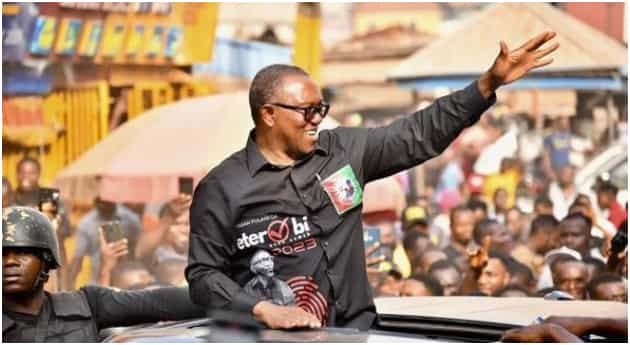PULSE
There are several other factors that contribute to electoral victory in Nigeria but sometimes, what works for one candidate might be an actual obstacle for another.
For the Labour Party’s presidential candidate, the dynamics may not absolutely work in his favour.
Lack of political structure
Since Obi emerged as the LP’s presidential candidate, the party seems to have transformed from being a fringe player to a nationally-recognised political platform.
Also, the #Obidient movement driving Obi’s campaign across the country has undoubtedly given the party a national outlook, but the main obstacle standing in the party’s way is its lack of a veritable political structure.
The ubiquitous nature of a political party with its physical structures, foot soldiers, agents, card-carrying members and politicians holding electoral offices at both state and federal levels across the country usually gives parties an electoral edge.
Unfortunately, the LP does not have such coverage to spread its relevance and internalise its existence in Nigerians’ minds as a mega party. It may be argued that the Obidient movement is big enough to serve as a structure but a political party structure transcends a support base.
Religious sentiment
Religion will play a significant role in the 2023 presidential election and for the candidates using it to canvass votes, it will either work or fail them.
Obi, who is believed to be a staunch Catholic, has been to several churches to endear himself to the Christian community and seek their votes.
While speaking at one of the churches he attended last year, the former governor of Anambra state advised Nigerian Christians to take back their country. The controversial statement coupled with his curious presence at church events lately has somehow strengthened the perceived religious agenda about his candidacy. It’s also one of the reasons his acceptance by the Muslim North hasn’t been as strong as it is with the South. It will be interesting to see how this religious factor plays out on election day.
Perceived ethnic agenda
There is no doubt that the 2023 election has already taken ethnic colouration, with the main presidential candidates and their supporters pandering to ethnic sentiments in their campaigns.
Obi’s campaign has been repeatedly accused of driving an ethnic agenda as the core part of his supporters are ostensibly from his ethnic base in the southeast where the narrative about political injustice against the Igbos is rife.
While this may be good for campaign optics because of the crowd, it tends to drive home the sentiment and resentment of other groups about his candidacy and may as well affect his chances.
LP’s popularity in the North
With the number of votes Kano, Kaduna and Katsina states produce, the electoral value of northern Nigeria is widely acknowledged. This is one of the reasons Obi picked his running mate, Yusuf Datti Baba-Ahmed from Kaduna.
But in a country where elections are won on the strength of the popularity of a party and its candidate, Obi may struggle to get substantial votes in the North because his party is barely known in the region which traditionally belongs to the People’s Democratic Party (PDP) and the ruling All Progressives Congress (APC).
Unlike his main challengers, Obi does not seem to have allies who are influential enough in the North and that may work against him in the election.
As predicted by a majority of opinion polls about the 2023 presidential election, Obi has a clear path to victory, but it remains to be seen how these obstacles will keep him from the finish line.



